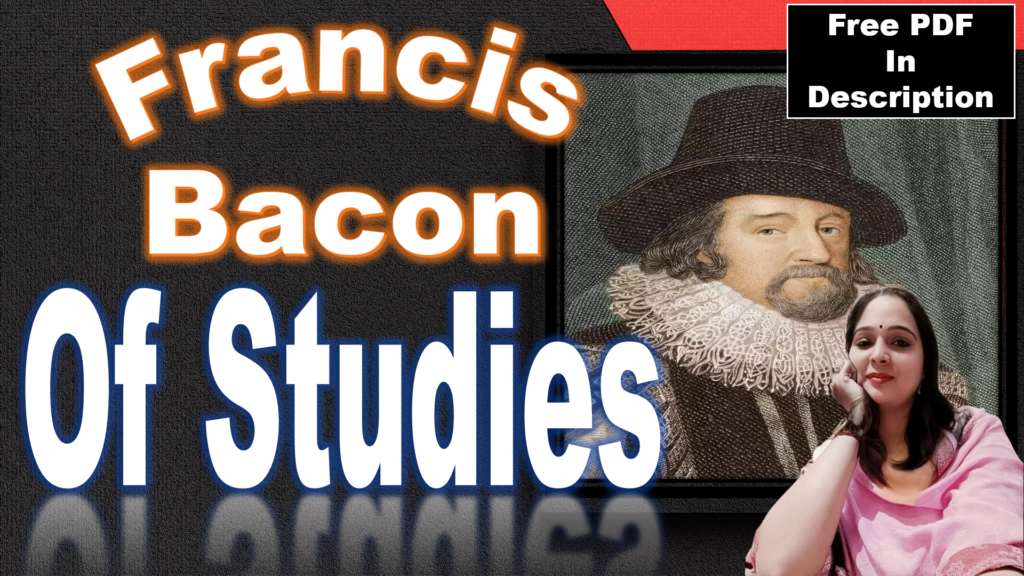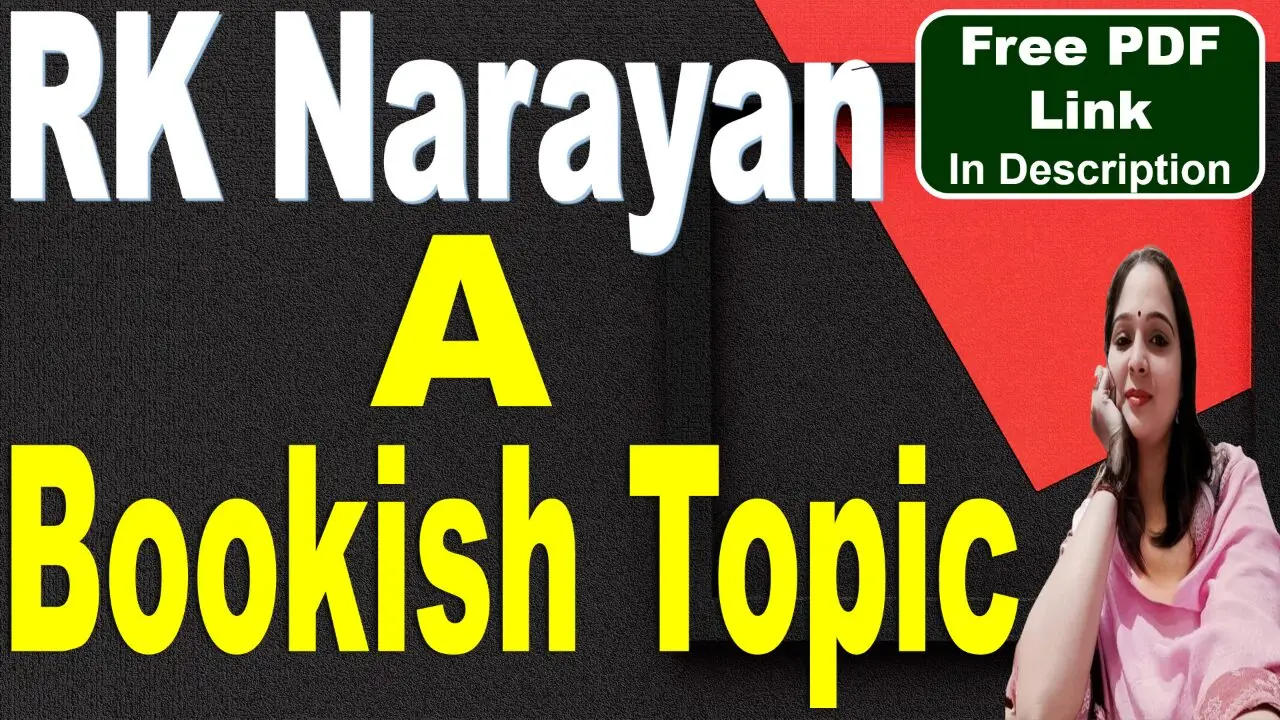
Of Studies by Francis Bacon Summary
“Of Studies” by Francis Bacon, written in 1625, is a timeless essay that explores the multifaceted benefits of studying. Bacon contends that studies serve three primary purposes: delight, ornament, and ability.
Delight is found in the solitude of private study, where individuals can immerse themselves in the joy of learning. Ornament, on the other hand, manifests in eloquent discourse, enhancing one’s ability to communicate effectively. Lastly, studies contribute to ability by honing judgment and facilitating the efficient handling of business matters.
Bacon warns against the extremes of excessive devotion to studies. Spending too much time in studies can lead to sloth, while using them solely for ornamentation becomes affectation. Relying solely on learned principles for judgment is criticized as the folly of a scholar. He emphasizes the need for a balance between theoretical knowledge and practical experience, suggesting that studies, like natural plants, require pruning through practical application.
The essay advocates a discerning approach to reading. Bacon advises against reading merely to contradict or blindly believe but encourages readers to weigh and consider the content critically. He categorizes books into those to be tasted, swallowed, or chewed and digested, depending on their significance and complexity.
Bacon acknowledges the various disciplines that studies encompass, attributing wisdom to observation rather than blind adherence to learned principles. He notes the varied benefits of different fields, such as history making men wise, poets enhancing wit, mathematics fostering subtlety, and natural philosophy delving into the depths of understanding.
The Latin phrase “Abeunt studia in mores” encapsulates Bacon’s belief that studies pass into and influence manners, emphasizing the transformative power of education on character. The essay concludes with the idea that any impediment in the mind can be overcome through suitable studies, drawing parallels with physical exercises tailored to address specific health concerns.
In summary, “Of Studies” promotes a balanced and practical approach to learning, highlighting the diverse benefits of studying while cautioning against extremes. Bacon’s insights continue to resonate, offering timeless guidance on the purpose and application of knowledge in one’s life.
Key Points
Author Francis Bacon, born in 1561, was an English philosopher, statesman, scientist, jurist, orator, and author. He served both as Attorney General and Lord Chancellor of England. Bacon has been called the father of empiricism for his contribution to the scientific method. His works argued for the possibility of scientific knowledge based only upon inductive reasoning and careful observation of events in nature. His dedication to careful observation and empirical method made him the pioneer of modern scientific thought.
Introduction The essay “Of Studies” was written by Francis Bacon, an English philosopher, statesman, scientist, jurist, orator, and author. He is considered the first major English essayist. Bacon wrote a series of essays in the late 1500s to the early 1600s. Each of these essays began with “Of” in the title and followed a specific concept, such as “Of Truth”, “Of Atheism”, and “Of Discourse”.
The word “essay” was borrowed from the French writer Michel de Montaigne. In French, “essai” means an attempt or trial, somewhat like the fragments and proverbs that were popular at the time. This reflects the exploratory and reflective nature of Bacon’s essays.
In “Of Studies”, Bacon forcefully comments on the value of reading, writing, and learning. He uses parallel structures (in particular, tricolons) throughout this concise, aphoristic essay. His essay expresses several comments that can be interpreted in various ways. For example, he suggests that studies serve for delight, ornament, and ability. He also provides advice on how to approach reading.
Bacon’s essays, including “Of Studies”, have had a lasting impact. They continue to be studied and appreciated for their sharp worldly wisdom and their influential ideas about the role of studies in personal and professional development.
Structure The essay is structured as a series of aphorisms that express concise thoughts or principles. Each sentence in the essay can stand alone, with its own bit of wisdom or advice. This structure allows Bacon to cover a lot of ground in a relatively short essay, discussing the value of studies and offering advice on how to read and what to read.
Setting The essay doesn’t have a specific setting as it’s a philosophical exploration of the concept of studying. It’s a reflection on the general nature of study as a pursuit and its impact on the reader. The setting is the reader’s own mind and life, as they apply Bacon’s observations to their own studies.
Theme The main theme of the essay is the importance of studies in personal and professional development. It discusses how studies serve for delight, ornament, and ability. The essay also explores the idea that different types of reading and study have different effects on the mind.
Style Bacon’s style in this essay is concise and direct. He uses parallel sentence structure and clear, straightforward language to present his ideas. His sentences are dense with meaning and require the reader to pay close attention. His use of aphorism – a brief statement that expresses a general truth or principle – is a key feature of his style.
Message The main message of the essay is that studies are essential for personal and professional development. They provide delight in solitude, serve as an ornament in conversation, and enhance one’s ability to make judgments in professional matters. However, studies should be balanced with experience, and their use should be practical rather than ostentatious. Bacon encourages the reader to approach studies with a critical mind and to apply their learning to practical life.
Francis Bacon
Birth and Early Life: Francis Bacon was born on 22 January 1561 in London, England.
Education: He was educated at Trinity College, Cambridge, but did not receive a degree.
Career: He served as Attorney General and Lord Chancellor of England under King James I.
Philosophy and Contributions to Science: Bacon is known as the father of empiricism. He argued for the possibility of scientific knowledge based only upon inductive reasoning and careful observation of events in nature.
Influence on the Scientific Method: His works led to the advancement of both natural philosophy and the scientific method. His ideas about the importance and possibility of a sceptical methodology make him one of the founders of the scientific method.
Literary Contributions: He is remembered for the sharp worldly wisdom of a few dozen essays. He developed a system for cataloguing books under three categories – history, poetry, and philosophy.
Famous Quote: He famously said, “Some books are to be tasted; others swallowed; and some few to be chewed and digested.”.
Death: He died on 9 April 1626.
Word Meaning
| Line | Tough Word | Meaning in English | Meaning in Hindi |
| 1 | Ornament | Decoration, something that adds beauty or grace | श्रृंगार, सजावट |
| 1 | Delight | pleasure | आनंद |
| 2 | Discourse | talk | प्रवचन |
| 2 | Disposition | Arrangement, organization | व्यवस्था, संयोजन |
| 3 | Counsels | advice | सलाह |
| 3 | Marshalling | Organizing and directing large numbers of people or things | संघटन, व्यवस्था |
| 4 | Sloth | Laziness, lack of motivation | आलस्य, सुस्ती |
| 4 | Affectation | Pretense, artificiality | बनावट, दिखावा |
| 4 | Humor | Particular characteristic or tendency | प्रवृत्ति, स्वभाव |
| 5 | Pruning | Reap/ dissect | छंटाई |
| 6 | Crafty | Clever, cunning | धूर्त, चालाक |
| 6 | Condemn | denunciation | निंदा करना |
| 7 | Contradict | disaffirm | खंडन |
| 7 | Confute | disprove | झूठा ठहराना |
| 8 | Swallowed | ingest | निगलना |
| 8 | Diligence | Labour / devotion | लगन |
| 9 | Deputy | subordinate | उप- |
| 9 | Distilled | clean | आसुत |
| 9 | Flashy Things | superficially attractive or impressive | आकर्षक बातें |
| 10 | Maketh | make | बनाना |
| 11 | Confer | provide | प्रदान करना |
| 11 | Wit | intelligence | बुद्धि |
| 11 | Cunning | clever | चालाक |
| 11 | Doth | old-fashioned third person singular form of the verb ‘do’. | |
| 12 | Witty | clever and amusing | विनोदपूर्ण |
| 12 | Subtle | Meticulous / minute | सूक्ष्म |
| 12 | Moral | Relating to right and wrong behavior | नैतिक, चरित्रगत |
| 12 | Rhetoric | The art of effective or persuasive speaking or writing | वक्तृत्व कला, प्रभावी संचार |
| 13 | Abeunt studia in mores | Studies pass into and influence manners | शिक्षा चरित्र को प्रभावित करती है |
| 14 | Stond or impediment | Obstacle, hindrance | बाधा, रुकावट |
| 14 | Wrought | fabricated | गढ़ा |
| 15 | Reins | Kidneys | गुर्दे |
| 15 | Confer | Discuss, talk things over | विचार-विमर्श करना |
| 15 | Exact | Precise, accurate | सही, स्पष्ट |
| 16 | Wit | Mental capacity, intelligence | बुद्धि, सूझ-बूझ |
| 16 | Wandering | Hang about | घूमना |
| 17 | Cymini sectores | “hairsplitters,” or someone who makes excessively fine distinctions in reasoning | “हेयरस्प्लिटर्स,” या कोई ऐसा व्यक्ति जो तर्क में अत्यधिक सूक्ष्म अंतर करता है |
| 18 | Apt | suitable in a particular situation | किसी स्थिति में उपयुक्त या संगत |
| 19 | Receipt | the act of receiving something | रसीद |





